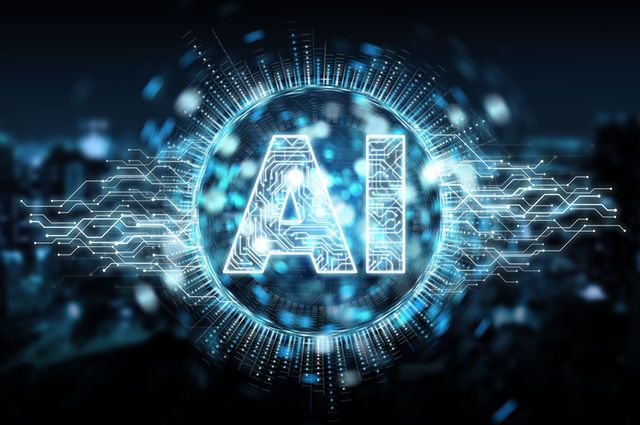How Artificial Intelligence (AI) Can Solve Major Deficiencies in Hospitality
15 experts shared their view
Artificial Intelligence (AI) can sift through and dynamically draw insights from mountains of data (operational, performance, guest, pricing, comp set, BI, marketing data, etc.) to allow hoteliers automate or augment operations, processes and decision making via various hospitality tech applications in guest services and operations, revenue management, CRM, guest communications, BI, digital marketing, personalization, inventory distribution, etc.
Obviously, it is up to specialized hotel tech vendors to carry the torch and create various AI-powered applications to solve concrete business needs and help the industry overcome its technology deficiencies. In the same time, hoteliers need to monitor, proactively familiarize themselves with and invest in the AI and other next gen technologies that are quickly making their way into hospitality.
The question is, what are the top five AI-powered applications that are must-have today and can solve the most immediate issues and deficiencies in hospitality?
To answer the question on the top AI-powered applications that are must-have today and can solve the most immediate issues and deficiencies in hospitality, we need to see what the deficiencies in hospitality are. From my perspective, the deficiencies include lack of sufficient hospitality employees (due to low pay, low prestige of hospitality jobs, COVID), hospitality employees'/managers' lack of time to focus on customer service (due to understaffing), and underutilisation of business opportunities (due to the lack of time, data, skills, or technology). Therefore, technologies that allow hospitality companies to compensate for the lack of employees, allow the employees to pay more attention to the guests, and support business decisions are of great importance. I would recommend chatbots, AI-powered revenue management software, Intelligent Document Processing solutions, in-room voice-activated devices, and robots (for cleaning, carrying items, information provision). These technologies would relieve employees from implementing dull and repetitive tasks and will free time for them to focus on customer experience, thus improving their productivity. Additionally, robots will liberate hospitality employees from some dirty tasks, while AI-powered revenue management software would help managers take more justified revenue management decisions.
Yes, of course, AI does already support various areas of a hospitality organisation; Revenue Management and Finance being the once at the fore-front here. And the usage of these systems will (and has to) grow.
But as many of these (hopefully) self-learning systems, they need a lot of data. And it is the ownership over these data (and the consequent knowledge growth that is generated with them) that has to be determined as a matter of priority for our industry.
So, in my opinion we need to decide first who owns the data (brand, operator, OTA, …) and who is allowed to utilise prior to using them in any AI System.
Personally I have rarely seen true AI solutions present in hospitality technology so far. Many people claim they are using AI, but when you dig into details you find out quickly that in many cases it is far from reality. However, there are some innovative apps within the apaleo Ecosystem which have taken excellent approaches. Here some great insight by Benjamin Devisme, Chief Evangelist Officer of Quicktext from Paris:
How Artificial Intelligence (AI) Can Solve Major Deficiencies in Hospitality.
Hotels are reopening and seeking ways to maximize direct bookings, reduce staffing issues and deliver a bespoke customer experience. In other words, hotels need to do more with less. Artificial intelligence is a key factor in solving this equation.
Maximize direct bookings
AI enables hotels to enlarge their direct booking funnel and conversion.
Smartphones redefine how people consume digital content. On desktop, people could sit down and search information on websites. With smartphones' smaller screen, search is cumbersome. Conversational interactions feel easy, natural and enable hotels to adopt a proactive approach to sales.
If a traveller doesn't book after a conversation with the hotel virtual assistant, an email follow up sequence can be triggered automatically and for high value booking requests the reservation team can be notified to follow up.
In addition, the hotel website is no longer the only hotel direct booking platform. That's where AI-powered virtual assistants such as Quicktext come into play and deliver content instantly on-demand on the hotel website, Facebook, WhatsApp, Google Business or Instagram.
Reduce staffing issues
For far too long hotel staff have been doing the work of machines.
Every guest is unique but most of them have the same questions and expect fast answers. It no longer makes sense to answer customers' requests manually when Natural Language Understanding algorithms enable to manage over 85% of customers' requests automatically.
Decision-making algorithms are also increasingly leveraging AI to reduce the time spent on collecting and analyzing data to help hotel executives focus on decision-making.
Virtual assistants such as infinito RMS are becoming better at communicating with hotel staff so that they act as a filter and draw attention to issues where human attention really adds value.
Deliver a bespoke customer experience
Many guests will not voice requests or issues at the front desk and hotels often find out about issues weeks after on TripAdvisor.
Virtual assistants connected to guest data sources such as the hotel PMS can proactively gather customer needs and feedback. Requests and complaints can be directed to the right member of staff in an instant facilitating and accelerating guest recovery and giving hotels a chance to reduce the volume of negative comments on review platforms.
Virtual assistants have no arms and no legs so good connectivity with hotel data sources and primarily the PMS are essential.
But all this is only the beginning of the value chain. Indeed, the creation of artificial intelligence requires the collection of large amounts of data... But in return, if it is well structured, it will generate even larger amounts of new data: the big data. What data and for what use, will be the subject of a future article.
The pandemic underscored the need for hospitality providers to have flexible systems that can be adapted quickly to exceed changing guest expectations. Artificial Intelligence (AI) will be a key driver for hotel profitability, and a growing number of innovative hoteliers are offering unique new experiences leveraging AI-based initiatives. AI can assist hoteliers struggling to fill staffing vacancies and allow staff to focus on delivering customer service rather than dealing with operational admin. Oracle Hospitality is focused on several areas where we know AI can address immediate deficiencies in hospitality.
One of the most business-critical areas where AI can assist hotels is with revenue management whether this is collecting and analyzing data, or selecting, pricing, and presenting room, attribute, or non-room products or services based on interpretation of data from multiple sources. But AI can also help in generating incremental revenue specifically focused on the guest life cycle, making offers to guests from booking to on-property, including optimizing room assignment. AI can help ensure offers are targeted to guests to draw in additional revenue without the need for staff manually determining who should be offered an upgrade and having to enter this data into multiple applications. Now more than ever, tapping any additional revenue from your hotel's inventory and services, and automating the upselling function, is key to improving financial performance and the guest experience.
Secondly, guest service can be improved through the use of AI, particularly with Chatbots while giving employees the most valuable thing right now: TIME. With the industry suffering labor issues, chatbots can instantly answer and address guest requests allowing staff to focus on other duties. We've seen hotels use Chatbots to answer simple questions through to managing reservation updates and offering other hotel services based on the guest interaction. Personalization can also be enriched with targeted offers focused on the customers spending habits and booking details; Fact is that with the proliferation of digital solutions for the guests, they now leave signals at every touchpoint, a great opportunity to extract the right insights through the power of AI to provide a richer guest experience whilst also increasing revenue for the hotel.
Thirdly is transforming day-to-day hotel operations – the areas which are historically admin heavy. For example, Housekeeping can utilize AI in daily attendant task assignments as well as create a rolling out of order schedule to optimize room utilization. Communication between departments is paramount and AI can trigger alerts or actions to users when an event occurs related to a booking change or occupancy level being met. Similarly, AI can be used to assist finance with the daily audit by auto-balancing the transactions and calling out any discrepancies or imbalances proactively.
AI was once considered a “nice to have” in the hospitality industry but it is now playing an increasingly important role in the industry and hotels can thrive by using applications that have AI built into the core system. The end result is that hotel owners can save significant money, eliminate human error and deliver superior service, responding to customer questions quickly. AI never stops learning through data collection and analysis of guest behavior and booking trends it has the capacity to significantly transform hospitality.
The most obvious ones are Pricing and Forecasting - and hopefully most of the vendors out there already have some or a lot of that built in. One that hasn't been solved yet and which is most "on-brand" for a hotel is guest personalization. Optimizing the guest experience from pre-arrival to after their stay. Efficiently informing front desk, house-keeping attendants, concierge, check-out of a guest's preferences to bring the "magic" back of things suddenly appearing just before the guest even has to ask for them. Because all systems need to inter-communicate this is a tough one to fix. Housekeeping solutions can ingest messages for room preferences, but will those messages make it all the way to the attendants device? Once all those systems can communicate together there's huge potential for cohort models to bring the luxury concierge magic to hotels everywhere.
I've recently finished writing a book (which should be out in a couple of months) on what I call "post-human hospitality." During the writing process, which took me over two years, I interviewed dozens of futurists and visionaries about the possible implications of AI, robotics, and automation in our industry, so the topic strongly resonates with me.
My prediction, however, is that, at least for the next 5-10 years, AI will solely play the role of co-pilot. Hospitality is (whether we agree or not) still mainly a high-touch industry, rather than a high-tech one. And, even though COVID significantly accelerated technology adoption, generally speaking, we're still heavily rooted in the 20th century.
So, even though I'd like to see AI-powered robot housekeepers running around every hotel, the (current) top five AI applications in hospitality are, unfortunately, not so sci-fi-oriented.
Here's my personal list:
- Revenue Management, of course;
- Conversational Marketing/Chatbots;
- Advertising (especially for campaigns with many bidding options and difficult to scale by humans, such as metasearch ads);
- Web Design (think about companies such as The Grid or Bookmark);
- Communication with guests (CRMs, customer surveys, etc.).
AI does and will have a place in hospitality. For far too long we have relied on old fashioned manual processes and adore spending hours in Excel sheets and copy paste information. We know that system integration issues have been behind this but with the modern open API platforms removing this barrier there is no reason why AI should not have a more prominent place in our industry. The cognitive learning aspect means it will only get better. There are so many mundane tasks that are done, repetitive situations and information that AI can take care of. Perhaps the current recruitment issues the industry is facing will advance the usage of AI.
We like to say that technology and AI can help hospitality companies automate the ordinary so they can focus their time on delivering extraordinary experiences. AI enables a huge number of use cases across the industry, so picking just 5 is hard, but here are the key ones:
- Guest Communications: Guest messaging and communications leverages AI in a number of ways, from translations to automated (Chatbot) responses, suggested responses (Whisperbot) and routing conversations to the right departments. Proactive communications and automated routing and responses can significantly reduce the strain on front-line staff
- Digital Itineraries and Recommendations: The role of the concierge is changing and AI can help deliver this by creating highly customized and curated itineraries for a guest with intelligent recommendations have been shown to increase guest ancillary spend by as much as 90%.
- Satisfaction Monitoring and Optimisation: Using AI to help optimise customer satisfaction is already with us. Helping identify the key drivers and identifying dissatisfied customers before it escalates into an issue.
- Forecasting: Sophisticated AI forecasting, leveraging additional signals such as event information, weather, airline capacity but more importantly it's what you do with that. Yes, you can optimise rates but that information is also extremely valuable to optimise the workforce and shifts which is critical when manpower is a scarce resource.
- Sustainability and Compliance: AI has an important role to play in this area, from intelligent building management systems to the way rooms are allocated to conserve energy. From a compliance perspective we can use AI in a number of ways, for example, removing sensitive data like credit card numbers stored in text fields and scrubbing pictures of identity documents which is critically important in a world of PCI, GDPR, CCPA etc.
Chatbots are becoming widespread and are designed to improve customer service. Chatbots are being used to respond to customer complaints online, as well as chat services that deal with simple customer requests. Furthermore, they can engage customers at any point of the day and this kind of response time is invaluable to customers.
Brand Management AI is helping hoteliers in managing their brands. utilizing customer feedback for benchmarking, managing social channels and reacting to it in real-time, screening negative reviews to make it easier for the customer service, and more.
Improve Guest personalization. The need to understand guest preferences is paramount and AI can assist in this process by remembering what guest likes and providing hoteliers with the ability to enhance guest expectations moving forward
Improving back-end processes. AI can automate these customer touchpoints in areas such as check-in or check out via the use of robots etc
With the increasing cost of labor-cost plus the impact of covid 19 where a lot of experienced staff have left the industry and may not return AI is going to play a major role in redefining service and supporting both front and back of house operations
AI in Hospitality is not some futuristic, Spielberg-esque technology or a nice PR opportunity to make your hotel company look cool, but a real-life, much needed technology that can help your hotel a) solve concrete issues plaguing the hospitality industry such as labor shortages and out-of-control labor costs, b) improve efficiencies and productivity, c) automate pricing and business decision making, and d) respond to the exceedingly high expectations of your exceedingly tech-savvy guests
Some of the temporary measures to tackle the current pressing issues employed by hoteliers include changes in the business model, outsourcing or hiring more gig workers to do the job and streamlining operations. But the only long-term solution is investing in technology that can solve the current labor shortages through AI innovations, automation, mobility, robotization and other next gen technology applications. The goal here is to do more with fewer employees by using technology and reduce the property staffing needs over the next few years by at least half compared to 2019 levels.
Here are the five AI applications that are must-have today:
Chatbots: An AI-powered chatbot on the hotel website like Asksuite or Umni.bg allows the property to cut significantly call volume and engage users in the Planning Phase of their Digital Customer Journey, answer all of their questions and steer them toward making a direct booking. Chatbots provide users with information through text, images, video, audio, etc. and serve as your property's 24/7 virtual customer service department. Edward, the chatbot of Edwardian hotels in London responds in real-time and round-the-clock to inform on hotel services and amenities, make recommendations, handle customer complaints, etc., thus relieving the work load of the front desk.
Guest Communications and Issue Resolution Technology: Guests want to communicate with hotel staff on devices and platforms of their choice. Adopting guest messaging and issue resolution applications like Runtriz, Zingle, Guestware, Beekeeper, etc. via guests' own smartphones or voice assistants in the room like Volara and Intelity not only improve customer satisfaction and staff efficiency, but reduce the need for human customer service.
RMS Technology: An AI-powered Revenue Management System (RMS) with real-time market, travel demand and comp set analytics, website and digital marketing analytics, and online reputation/consumer sentiment data feeds to optimize performance can achieve a near-perfect real-time pricing in response to market dynamics, and significantly enhance GOPAR (Gross Profit per available room). Now is the time to convince management and ownership that only a cloud AI-powered revenue management system (RMS) can help the property maximize revenues and successfully compete in the super complex post-crisis marketplace.
CRM Technology: A Customer Relationship Management (CRM) is now needed more than ever to engage, acquire and retain guests and build customer loyalty and boost repeat business, which is 10-15 times cheaper than acquiring new guests or acquiring OTA customers. Using CRM technology like Cendyn CRM Suite, SHR Maverick or Revinate you can boost your property's repeat business and maintain an “automated conversation” with your guests throughout their customer journey: from useful information like weather during the stay, events and happenings at the property and in the destination, customized upsells and upgrades based on the RFM Value or membership status of the guest, etc. The CRM technology automates the pre-arrival conversations with the guest, provides information and answers to important questions arriving guests might have and relieves staff from having to answer phone calls and emails.
Attribute Based Shopping (ABS): Having an AI-powered ABS application/ personalization engine like PROS can enable your website, CRM and Guest Communications applications to automatically personalize pricing and product offering to the individual customer level and take into consideration dynamic factors such as customer's preferences, user browsing behavior, influencer status, “intent to purchase” intensity, and of course the more mundane factors like RFM value, loyalty member status, past booking history, feeder market origin and demographics. I believe One-to-One Pricing, powered by AI will be the absolute winner for both travel consumers and hoteliers. Airlines like Lufthansa are already experimenting with personalization engine that delivers highly personalized airfares, add-ones and upsells. ABS is already a departure from the current revenue management “one-to-many” pricing approach, but “one-to-one” pricing will take property pricing to an entirely different level.
Food for thought: The recent privacy moves implemented with Apple's iOS 15 update plus the upcoming elimination of the 3rd-party cookies by Google underscores the importance of first-party data, hence the urgent need for any hotel company to utilize an AI-powered Customer Data Platform (CDP). A First-party data is the customer data (past customers & guests, website users, opt-in email subscribers, lists of corporate travel managers, meeting planners, wedding and event planners, SMERF group leaders the property has been doing business with or at least in communications with, etc.) that comes from the PMS, CRS, WBE, CRM program, from the property's website, opt-in email sign-ups, even customer lists sitting on laptops of sales and marketing personnel.
The CDP provides “a single source of truth” for your guest data and not only creates 360-degree guest profiles, but more importantly augments guest profiles with preferences, social media ambassadorship data, customer engagement data, etc. which allows for highly personalized customer service delivery pre-, during and post-stay, and highly effective one-to-one marketing and guest retention strategies. A CDP can significantly increase customer engagements and boost revenues via look-alike audiences/cohorts marketing while sharply reducing marketing spend, agency fees and payroll.
The AI world is shifting rapidly to become part of a technology platform outside of specific lines of business or business functions. The intent being that system logic and computing power can be applied more generically to a range of data problems or opportunities. That's a good thing.
Specifically to the hospitality industry the major parts that are/should utilize/can benefit from artificial intelligence;
Revenue and Pricing - accumulating data and crunching large volumes of calculations based upon data input and pattern recognition is modern revenue management. An old technology for our industry but still not as deployed as it should be. People can't do this on any necessary level of effectiveness based upon the breadth and depth of information involved.
Supply Chain - the ability to monitor, manage and effect supply chain based upon real time information flow from order to consumption is underdone in hospitality and a massive area for improvement. The benefits include less cash tied up in stock, JIT procurement meaning higher quality, fresher product, turnover, performance and profitability. Hospitality is short timeline manufacturing. We need to see it that way.
Talent identification - intelligence coming into the talent-role matching and speeding the timeline between job seekers and opening would make the world of difference. Given the amount of information candidates and employers contribute to job sourcing this should be further progressed.
Customer optimization - examining and analyzing the behavior of the customer and applying logic based rules on how to best match the customer need with revenue opportunities across the business is the big piece that the industry needs. A perfect candidate for artificial intelligence at the individual or personalization level of data.
In today's world, hospitality organisations are flooded with data, overcome by demands for personalisation and strained to be cost-efficient. Tools that could streamline operations while processing data to provide actionable insight might very well be the knight in shining armour for the industry.
AI-powered applications, if adopted intelligently, could very well be this knight for organisations. Filling in all the gaps, from labour issues to big data overloads, AI tools have extensive and effective applications within the industry.
There are, however, a few key areas in which AI applications could be especially beneficial.
- Direct booking
AI-powered chatbots that are integrated with Google My Business can bring potential customers from internet searches directly to the hotel's own booking engine. Chatbots can also elevate the direct booking experience by driving relevant and personalised conversations with the customers to enable seamless booking. Research has found that if given a choice between filling out a website form or generating the answers through a chatbot, 86% of customers preferred a chatbot.
Moreover, the technology can track customers lingering in the booking process and direct a salesperson to assist them with the booking process one-on-one. Additionally, shifting focus to direct booking allows hoteliers to cut down on the commissions paid to OTAs.
- Upsell/Cross-sell
A chatbot combines AI and natural language processing to create more natural and relevant dialogues, which can enable frictionless upselling and cross-selling. Customers today prefer cross-selling services, with 53% considering booking transport services and 55% booking attractions through the hotel. This means that not only can hoteliers use the guest profiles created through the AI to promote hotel services, but the information can also be used with other partnered organisations, making the hotel the central point in the traveller's experience. Also, AI-assisted notifications can align guest preferences with available offers and notify the Front Desk staff, allowing them to reach out to guests with the most relevant offers available.
- Concierge
AI-powered concierge creates a simple and intuitive communication channel that can handle up to 60% of guest interactions. It not only accommodates the speedy service expected by today's guests, but also assists in promoting events and activities in and around the hotel. From suggesting trekking and snorkelling to the adventurous guests to cuisine options at partnered restaurants to the food-lovers, AI concierges can analyse the guest data and guide them towards the perfect experience. Research by Gartner shows that an American house will have around 500 AI-powered devices by 2022. This inevitably means that AI-based interactions will soon become a mandate for hotels as well.
- Guest request
AI-powered applications can easily accommodate guests 24/7 and can answer from 60% to 90% of repetitive guest questions. The applications can engage in more humanised dialogues with the guests to ensure that their exact requirements are met. Moreover, these applications can attend to multiple guests simultaneously and direct the requests to the relevant departments, easing the work on the staff. According to IBM, an AI-chatbots contribution can reduce customer service costs by 30%.
In addition to that, AI applications can ensure timely delivery of services through time-tracking functions and notify relevant persons in case of delays, securing a seamless experience for the guests.
- Performance tracking
AI applications can easily be programmed to keep track of business-relevant metrics. From operational KPI monitoring and inventory management to rate monitoring and housekeeping scheduling, AI bots are capable of tracking millions of variables, including staff attendance and room occupancy, and assessing them against set criteria. The AI then uses this analysis of data and trends in machine learning-based algorithms to assist decision making and provide predictive analytics.
AI-powered applications can come to the rescue during some of the most common and persistent challenges in the hospitality industry. It is high time for hoteliers to combine the superior efficiency of smart tech with the responsiveness of AI to deliver exquisite guest experiences.
What is house balancing and why is it important? AI can greatly help here!
Every hotel's market mix fluctuates by weekday, throughout seasonal patterns, and with the occasional special event. Room inventories made available for sale often include tactical sell limits. These are set based on predicted demand, usually on a per day basis. In today's uncertain market, it is one of the revenue manager's most potent tools to accommodate for where the demand is, without diluting the value of premium inventory.
A hotel's mix of room categories however is fixed and real guests will stay in real rooms. Balancing the house is to bring back together what was sold, and what is truly available. It means deciding every day, how to best accommodate upcoming arrivals and whom to upgrade to better categories. Except in hotels with mostly one night stays, it can be one of the most difficult tasks to master, requiring deep knowledge of the hotel's rooms and excellent understanding of guests' needs.
Why automate?
The operating environment of a hotel is no longer the same. Staff shortage is endemic at all levels, past experts have taken on more responsibilities or changed hotels. Many have left the industry for good. At best they are short on time, at worst no longer there. Retraining the expertise it takes for house balancing would take months and possibly years. Under unstable conditions in the labor market, it is an untenable position to be in. Speaking of the labor market, rooms also need to be cleaned with some of the hardest to find staff. Rooms may need to be left dirty for a night or more to flatten the demand over multiple days. We now begin to see clearly, how much of the hotel operation was reliant on expert decision making.
How Automation and AI can help here:
A hotel's best chance to balance the house while boosting ADR and RevPAR, is by upselling the right guests to the right room categories. A good upsell system continuously evaluates balancing needs in real time, prices to achieve a real Win Win situation for guests and the hotel, and boosts guest satisfaction in the process.
Any discussion about AI in hospitality should probably start with the industry's track record on technology in general. In my opinion, criticism about our slow uptake of tech points the finger at hoteliers unfairly. Faced with narrow margins even in good times, GM's do not have the luxury of betting on an emerging technology. If it doesn't connect to a positive impact on the bottom line, it might be nice to have, but it's not a necessity.
It's all about being problem-centric, not tech-centric. Some tech vendors get it, and some don't. Here are some of the most promising problem/solutions, many of which are already making it to market.
Revenue Optimization. The recent development of forward-looking market intelligence tools is one of the coolest, and a must have for every hotel. Here AI is applied to tame the massive amount of search and booking data to deliver clearly actionable intelligence for future pricing decisions. In addition to collecting competition pricing information, which was once done manually, difficult decisions like target markets and functional competitive sets are now made easy as a result.
Digital Marketing. AI is already being used to create detailed customer profiles to assemble look-alike audiences, allowing digital marketers to conduct highly targeted campaigns without the GDPR concerns that come with knowing everyone personally. Some innovative booking engine providers are using this profiling ability to personalize the online booking experience.
There is another wave of great solutions on the way, in the form of facial recognition technology paired with AI. Facial rec offers extremely effective, contactless solutions for things like identity and access (who has more locked doors than a hotel?), as well as contactless payment and even loyalty program administration. Though already widely used by other industries, privacy concerns are the main reason hoteliers cite for their lack of interest in most regions of the world.
This feedback is causing some smart tech providers to look in a different direction, harnessing the potential of facial rec and AI while steering clear of personal identities.
Restaurant Revenue Management. This technology can be used to track unique faces, allowing for real-time measurement of important KPIs like seat and table occupancy, waiting times, and meal duration. It can even be used at the entrance to count the number of customers who walk out, giving the restauranteur a true picture of their unconstrained demand. Historically, this was only accomplished through a labor-intensive manual process and meaningful analysis of trends was next to impossible.
Customer Sentiment. One of the more sophisticated applications of AI and facial rec involves measuring personal sentiment. The ability to know customer satisfaction in real-time, and easily correlate it to other metrics such as revenue per available seat minute, is a huge step forward from the prevailing practice of occasionally evaluating TripAdvisor feedback.
Employee Sentiment. This same technology can be used to measure employee satisfaction. In a time when scarcity of talent has renewed the industry's focus on employee satisfaction, the ability to measure it in real time, and analyze it in depth, are sure to be a game changer. Imagine the power of a busy manager receiving an automated message on their smartphone saying, “Stop by the front desk. Scott isn't having a good day.” Amazing.
It's a mistake to think that advances in artificial intelligence (AI) will come at the expense of more human notions of high-touch service. While optimized booking and hyper-targeted messaging are certainly beneficial, nothing will replace the effect that a kind smile and a warm hello can have on the guest experience. I view the role of AI as a tool to facilitate a more genuine form of hospitality: By simplifying and automating common administrative tasks, a cloud PMS can allow hoteliers to do what they do best 一 engage with their guests.
Of course everything starts with knowing your customer 一 if you've ever had to ask a loyal guest “have you stayed with us before,” you've just sent your relationship back to zero. While a robust guest profile can refine targeted messaging, it's even more powerful in the hands of an experienced hotelier. When armed with a tablet containing a guest's entire stay history, preferences and special requests, hoteliers can more naturally suggest upgrades and amenities that would have a direct impact on their guest's stay.
A mobile PMS featuring advanced automation,mobile communications and an easy-to-use interface provides the technological foundation for more engaging guest interactions. Hoteliers can make more eye-contact when they're not buried in a screen, navigating confusing menus or trying to complete repetitive administrative tasks. They are also more likely to deliver creative solutions to guest problems when they can receive instant room status updates, and send customized requests directly to housekeeping or maintenance.
AI can also help managers and operators consistently deliver on the fundamentals of good hospitality, leaving them free to focus on their brand's unique version of the ideal guest experience. A mobile PMS can deliver colorful analytics dashboards and automated reporting modules directly to a manager's tablet or mobile device, letting them keep a pulse on their hotel from anywhere in the world with an internet connection. Similarly, an automated housekeeping module can efficiently assign tasks by employee work-load and geographic proximity, while keeping front-desk staff apprised of their progress.
The role of technology is to enhance the human experience, and the role of AI will be to create the technological foundation for more warm, genuine and organic interactions between hoteliers and their guests.















